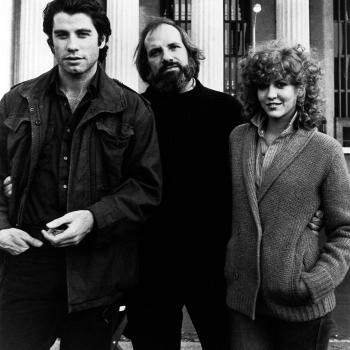
Pastoral. From pastor, as in, a shepherd.
In the Catholic circles in which I run (broadly orthodox in liturgy and theology—though I will be the first to admit that that doesn’t always mean the same thing as traditional does to some. I don’t wear a suit on Sundays. Anyway), pastoral can be a bad word. Whatever it might mean, its connotations are clear enough: uncertain, untrustworthy, basically snake-like. To the most convinced mind, it means something like “wiggle room for liturgical dance” or “an excuse for the bad patres to give the divorced communion in the hand—after they haven’t fasted.”
In a sense, I admire the fortitude of this mindset. There’s Truth (capital T, amici); we have the formula for reaching that Truth, and your best bet (if not your only bet) is sticking to that formula. Here’s the right homeschooling kit, the right novena, and a rosary that won’t break from all the bead massaging you can expect to do.
I’m not being sarcastic. Even if this is not me, I see its value, and, insofar as our age is broken (in an already fallen world), it provides a certitude and conscious subservience that those of us raised as postmodern seculars have good cause to envy. It’s taken me years to be able to not react with cynicism to more arcane (and non-necessary) Catholic devotionals. Thankfully, reading Dorothy Day and Thomas Merton have clarified their beauty and richness.
But what this mindset gains in solidity, it loses in flexibility. Hence the derision for the “P” word in all its filthy, slithering ambiguity.
Dirty and slippery as it might be (and what else might be said of Christ’s flesh as he hung, caked in blood, dripping with sweat on the Cross?), it’s a concept integral to Catholicism. As long as the Body of Christ is multifaceted—including invalids, car mechanics, academics, brow-furrowers, seekers, and cynics—the how of instruction and transmission of the what will remain necessary.
An example. Paul Mariani writes of the deathbed conversion of Wallace Stevens (the credibility of the story is questionable, but no matter) that the attending priest both answered his questions and picked up and read some of the old man’s poetry. The former was direct catechesis (done in a very friendly way, I might add), but the latter created a personal bond between two human beings. Imagine if the priest had walked in and called him a degenerate for writing (often) godless poetry about Ramon Something-Hispanic while questioning hierarchic authority—the only emperor being that of ice cream.
Or take Gerard Manley Hopkins, also a poet. One of his sermons in working-class Liverpool mentions cricket. We Americans might snicker, but this was so that his audience—his parishioners—might understand the faith. In fact, he uses the analogy to explain what a paraclete is—something on which I suspect we could all use a refresher. I smirk imagining him launching into “That Nature is a Heraclitean Fire and of the comfort of the Resurrection” (yes, that is the title of one of his poems) in front of a bunch of blacksmiths and dockworkers.
But that would not have been pastorally sensitive.
Lastly, do you have a favorite Biblical book? Probably. Or at least a few competitors. In a way, one might call this the pastoral nature of the Holy Spirit. Some specific type of writing speaks to each of us; others less so. Some are enamored of the gory drama of the historical books while I prefer the Johannine works along with the wisdom literature.
I insist on this point because it’s actually a hard one for me to get my head around. Sometimes I am completely dumbstruck by how my fellow Christians (especially Catholics) can believe the things they do, read what they read, act like they act. But singularity is not the way of the Holy Spirit—many gifts, one Spirit, many parts, one Body.
The pastoral is precisely God’s way of calling that complex body, which, when brought together into His simplicity, testifies both to the diversity and beauty of His creation as well as to His power to order what appears unconscionably chaotic.
Of course, it’s still insane for anyone to actually enjoy reading young adult fiction. But that’s for another post.













